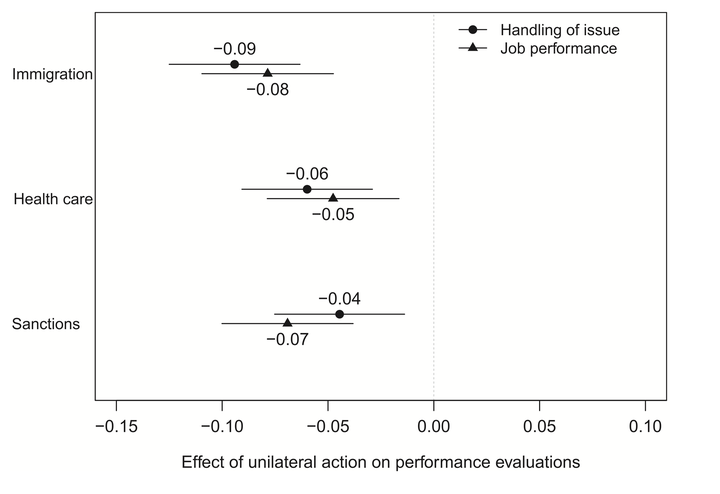Unilateral Inaction: Congressional Gridlock, Interbranch Conflict, and Public Evaluations of Executive Power

Abstract
Presidents routinely overpromise and underdeliver, especially amidst partisan polarization, narrow congressional majorities, and persistent gridlock. As Congress routinely stymies their legislative agendas, presidents consider alternative courses of action. We study public re- actions to unilateral power in the context of congressional inaction. While some research suggests that presidents cannot afford to pass up opportunities for action, more recent scholarship indicates that the public holds negative views of unilateral power and disapproves of its use. Survey experiments embedded on a national sample of Americans provide unambiguous evidence of the costs of unilateral power. Across three policy areas and between- and within-respondent analyses, the public responds negatively when presidents exercise unilateral power rather than accept the status quo, even among individuals who share the president’s policy views. Our results suggest that while legislative gridlock may increase the appeal of unilateral power, its use may come at a steep public cost.